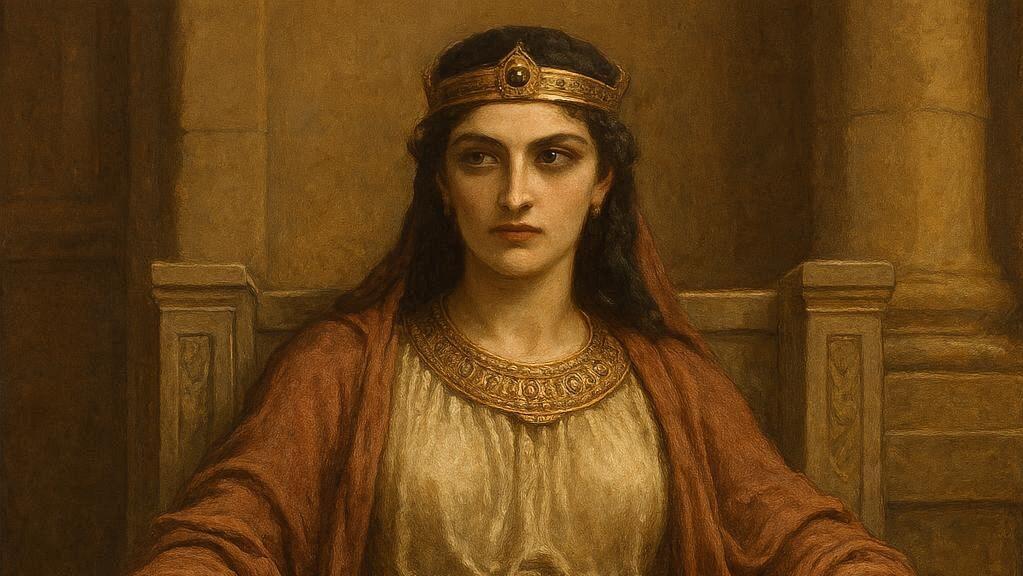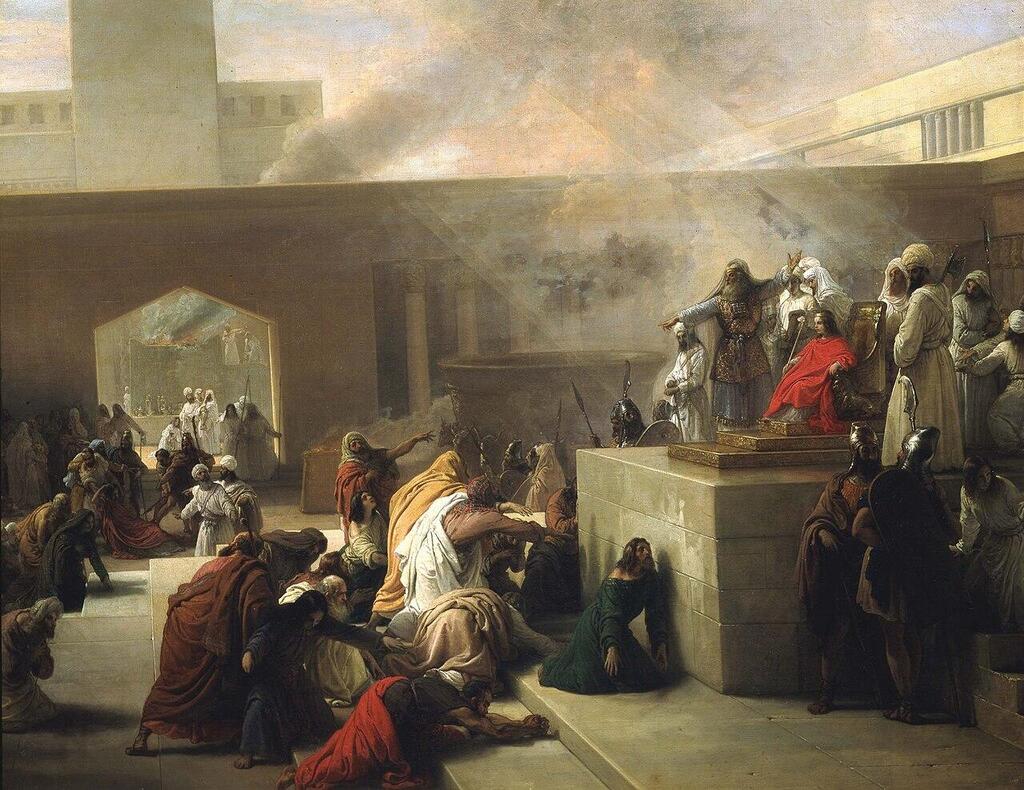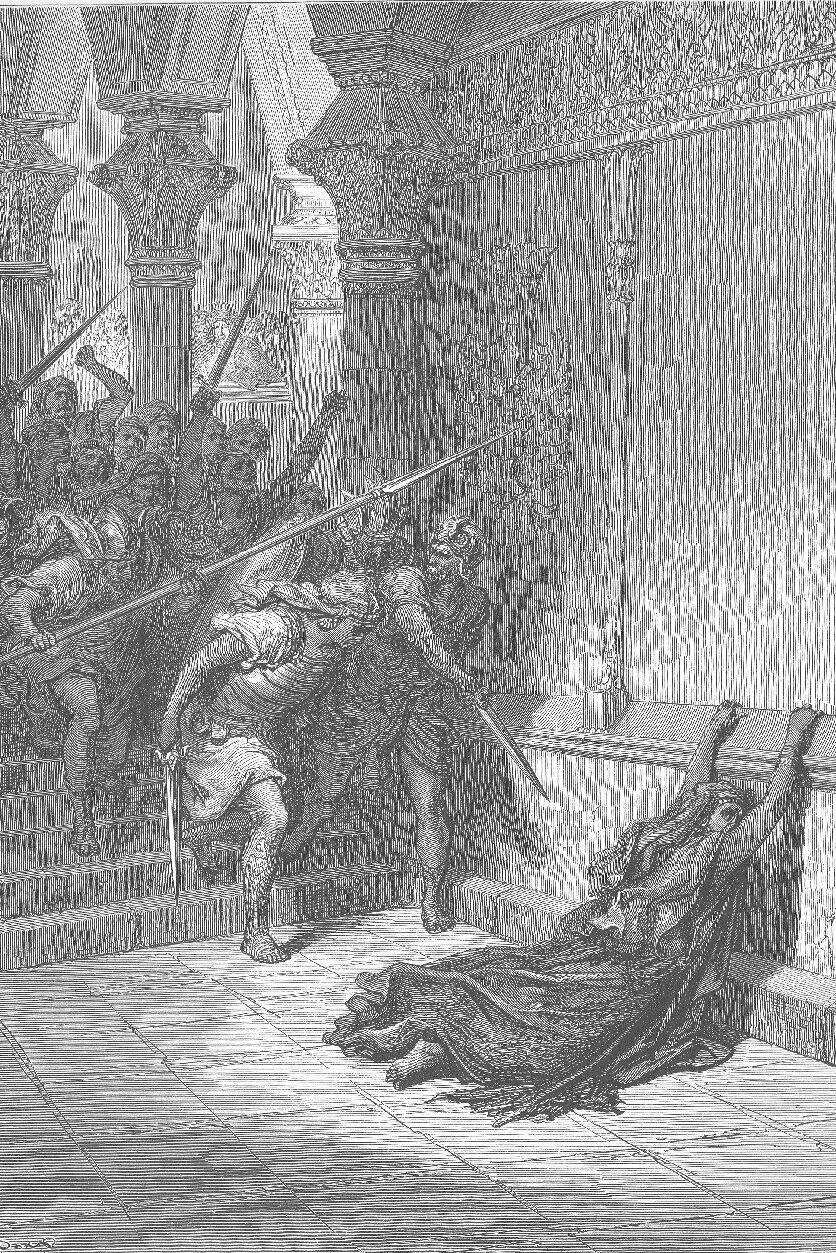Developer Offer
Try ImaginePro API with 50 Free Credits
Build and ship AI-powered visuals with Midjourney, Flux, and more — free credits refresh every month.
Athaliah Judahs Controversial Queen Villain or Visionary
Athaliah, the queen of Judah, is a figure etched in biblical history as the first woman to rule the kingdom and one of its most notorious leaders. Her story is one of bloodshed and ambition, beginning with a brutal massacre of her own family to eliminate any rivals to the throne. She was ultimately overthrown by a child—her grandson, Joash. But does this narrative capture the full picture? How did she rise to such power, what caused her downfall, and was she the wicked monarch tradition remembers, or something more complex?
A Brutal Path to the Throne
Born into the royal family of Israel, Athaliah was the daughter of King Ahab, a powerful monarch of the northern kingdom. Through her marriage to Jehoram, king of Judah, she became part of the southern kingdom's ruling line. However, after both her husband and their son, King Ahaziah, died, the throne of Judah was left vacant, creating a power vacuum.
 Athaliah, queen of Judah (Photo: Generated with AI)
Athaliah, queen of Judah (Photo: Generated with AI)
As the widowed queen mother and an outsider to the sacred House of David, Athaliah saw her opportunity. She acted swiftly and ruthlessly to secure her position.
“When Athaliah, the mother of Ahaziah, saw that her son was dead, she arose and destroyed all the royal heirs.” (2 Kings 11:1)
Her motive was cold and calculated: to remove any potential claimant to the throne. This Machiavellian approach, eliminating rivals to consolidate power, cemented her infamous reputation.
An Unprecedented Reign
Athaliah's rule was extraordinary, not just for its violent beginning, but because she was Judah's only female monarch and its only ruler not descended from King David. According to Rabbi Nehemia Steinberger, host of a Bible studies podcast, periods of chaos often open doors for women to assume leadership roles. “In the era of the Judges, when ‘there was no king in Israel; every man did what was right in his own eyes,’ we suddenly meet Deborah the prophetess, Delilah who brings down Samson, Jael who kills Sisera... and Naomi and Ruth who establish Israel’s royal lineage,” he notes. Steinberger also draws parallels between Athaliah and her infamous mother, Jezebel, a powerful political figure in her own right.
The Secret Heir and the Temple Coup
Despite the thoroughness of her massacre, one infant escaped: Joash, her own grandson and the last surviving Davidic heir. His aunt, Jehosheba, hid the child and his nurse within the protective walls of the Temple.
 The coronation of Joash – a painting by 19th-century Italian artist Francesco Hayez
The coronation of Joash – a painting by 19th-century Italian artist Francesco Hayez
For six years, Joash remained hidden while Athaliah ruled Judah. In the seventh year, the high priest Jehoiada, Jehosheba's husband, decided it was time to restore the rightful king. He orchestrated a coup, arming the Temple guards with King David’s ancient weapons and gathering them for a secret coronation.
“He brought out the king’s son, put the crown on him, and gave him the testimony; they made him king and anointed him, and they clapped their hands and said, ‘Long live the king!’” (2 Kings 11:12)
Treason and Downfall
The sounds of celebration reached the royal palace. Athaliah rushed to the Temple, only to find the young boy Joash on the royal platform, hailed as king by the cheering crowds. Realizing she had been betrayed, she tore her clothes and cried, “Treason! Treason!”
Jehoiada commanded his guards not to defile the Temple with her blood. They seized her and led her out through the “Horse Gate” to the palace, where she was executed, bringing her six-year reign to an abrupt end.
 The death of Athaliah – from Gustave Doré’s Bible illustrations
The death of Athaliah – from Gustave Doré’s Bible illustrations
Villain or Victim of History
While the Book of Chronicles calls her “Athaliah the wicked woman,” the main account in the Book of Kings is surprisingly neutral, never explicitly stating that she “did evil in the eyes of the Lord” as it does for many other monarchs. Some scholars suggest the story of her massacre was fabricated or exaggerated by authors seeking to legitimize her overthrow and restore the divinely ordained Davidic dynasty.
Rabbi Steinberger notes that ancient anxieties about powerful women may have also colored her legacy. “The verse says, ‘You shall not allow a sorceress to live’ — not a sorcerer,” he explains, pointing to how qualities like cunning and mystery were often projected onto women.
The Legacy of a Controversial Queen
Her seven-year-old grandson, Joash, was crowned king. He initially ruled justly under Jehoiada's guidance but took a dark turn after the priest's death, reintroducing idol worship and even murdering his own cousin. Joash himself was later assassinated by his servants, a grim fate for the supposed savior of David's line.
Centuries would pass before another woman, Salome Alexandra, ruled Judah. Athaliah remains a cautionary figure, the queen who dared to seize power and challenge the sacred Davidic lineage. Whether a ruthless villain or a visionary leader condemned by history, her story serves as a powerful reflection of how tradition judges women who claim authority in a man's world.
Compare Plans & Pricing
Find the plan that matches your workload and unlock full access to ImaginePro.
| Plan | Price | Highlights |
|---|---|---|
| Standard | $8 / month |
|
| Premium | $20 / month |
|
Need custom terms? Talk to us to tailor credits, rate limits, or deployment options.
View All Pricing Details

